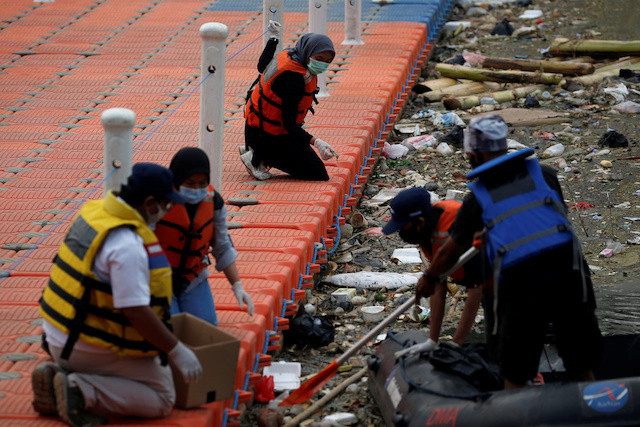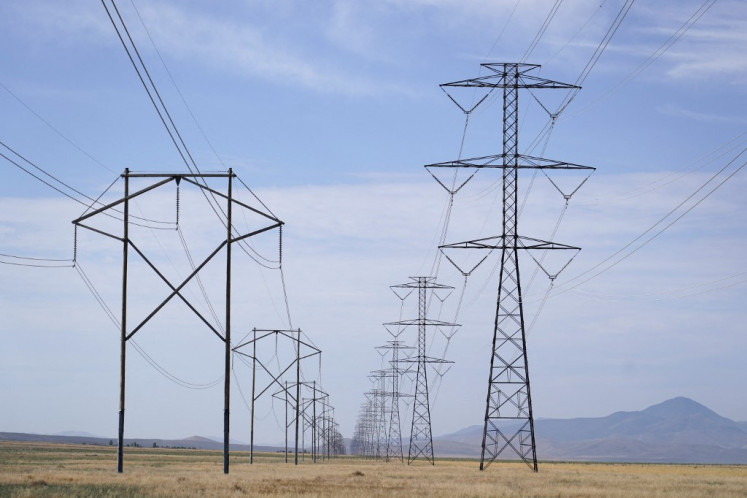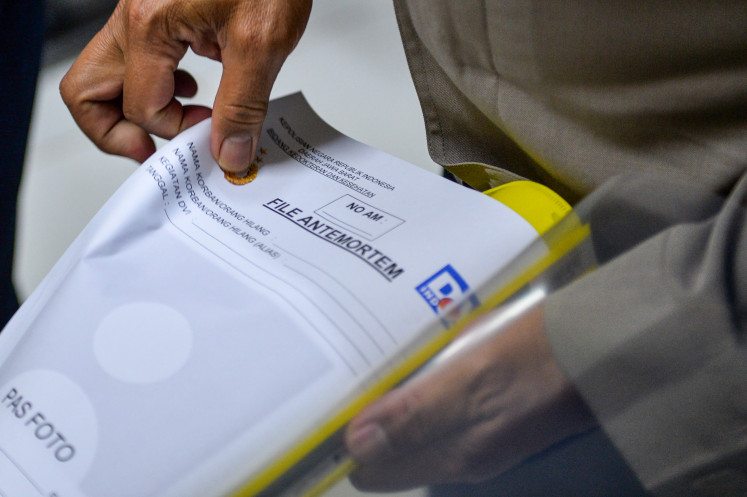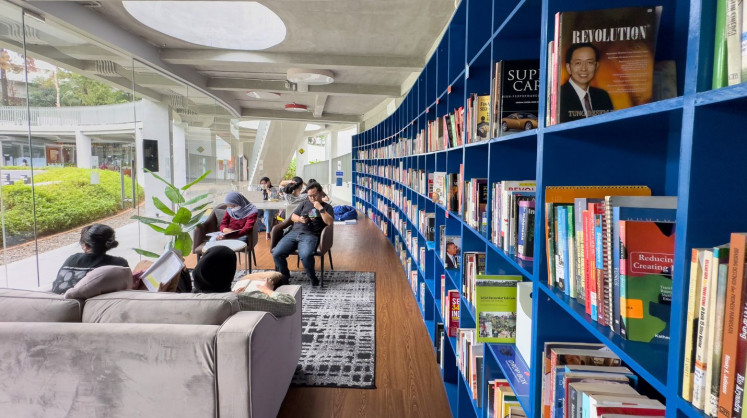The bottom of Indonesia's waste management iceberg
The enforcement of waste management regulations here is frequently hindered by populism politics in the government.
Change text size
Gift Premium Articles
to Anyone

O
vercapacity landfills, marine debris, animal deaths, flood, climate change and respiratory disease – these are all the results of a careless waste management system in Indonesia. We could say those are just the tip of the iceberg. The real problem lies beneath the surface.
During our 15 years of experience running non-profit organizations and advocating responsible waste management in Indonesia, I saw several recurring patterns in dealing with waste management problems. Although the issue might be different: river pollution due to landfill landslide, poor life quality of waste scavengers and the pros and cons of waste incineration facilities, the causes are often similar.
We call it the bottom of Indonesia's waste management iceberg problem, and it is composed of four crucial parts: Waste management behavior; waste management governance; bureaucracy and political governance; and Indonesian people’s moral values.
It is only logical that the way we manage our waste has a significant effect on the waste management crisis that we have today. The thing that we often fail to see is that the waste management behavior itself is the result of another bigger problem.
Ineffective waste management governance is causing ineffective waste handling systems, both at the regional level and household level.
And if we give ourselves a chance to trace further, it all goes back to the conflict between the moral values that we wish to hold as Indonesians and what we practice in the field.
We aim to solve our waste management problems by prohibiting illegal waste disposal, fighting against the practice of burning trash without the proper technology, and urging everyone to reduce the use of disposable shopping bags. We may have great waste management regulations in hand, but without great waste management governance, we can only do so much.
According to the waste management director at the Environment and Forestry Ministry, Novrizal Tahar, the need for raw materials in Indonesia in 2021 stands at around 7 million, while only 52 percent can be met from within the country. In order to reduce the use of virgin materials, local industries plan to import the raw materials. But the ideal solution would be to get the remaining 48 percent of raw materials from our local recycling industry.
Yet the lack of waste management facilities and education in several areas of the country causes segregated waste to be mixed again during waste collection. This means a loss of valuable recyclable materials and more waste going to landfill, or worse, a chance for waste to pollute our environment.
Improving waste management governance is not always about the procurement of waste management infrastructure. We also need to find a way to efficiently enforce waste management regulations. We need to define a clear partnership among stakeholders, such as making a distinction between the person who formulates the regulation and the person who operates the program.
The most crucial thing in fixing our waste management governance is to create a sustainable and stable waste management financing operation. Only by making a waste retribution system that is able to include all Indonesian citizens in every city and area can we start to move on to our next problem to solve.
When I brought all of those problems to the government level, the discussions often went into whispers about bureaucratic politics.
The biggest obstacle that I found is that the enforcement of waste management regulations here is frequently hindered by populism politics in the government. Our state officials tend to strengthen their political positions by pleasing other people. Asking citizens and political partners to obey the rules is not always considered a likable action, so many of our governments and politicians opt out of it.
When faced with populism political practices, I often wonder whether we have all forgotten that giving the best to the people does not always mean doing things that the people will like?
The chaotic role of the government in managing waste is not only felt by me. Many friends convey their aspirations and ideas to me. They are people who are actively preserving the environment in their respective areas. Through social media, they expressed their problems regarding the difficulty in playing an active role in this country.
My colleagues, partners and I agree that in solving environmental problems in Indonesia, we should not let ourselves be trapped by labeling individuals and organizations. We need to break down the barriers of group interests to pursue a larger common interest.
The hard truth is that at the very bottom of Indonesia’s waste management iceberg problem there lies the part that we need to fix together: bringing back our nation's real moral values.
We need to remind ourselves of Pancasila, the five principles. We have stated in it that we wish to be a nation that embodies the spirit of unity and ensures justice for all.
Let’s build a proper waste management system that serves all citizens of Indonesia, no matter where they live or what they do for a living. We need to do it fast, and we need to do it as one nation.
***
The writer is founder and CEO of Waste4Change.









